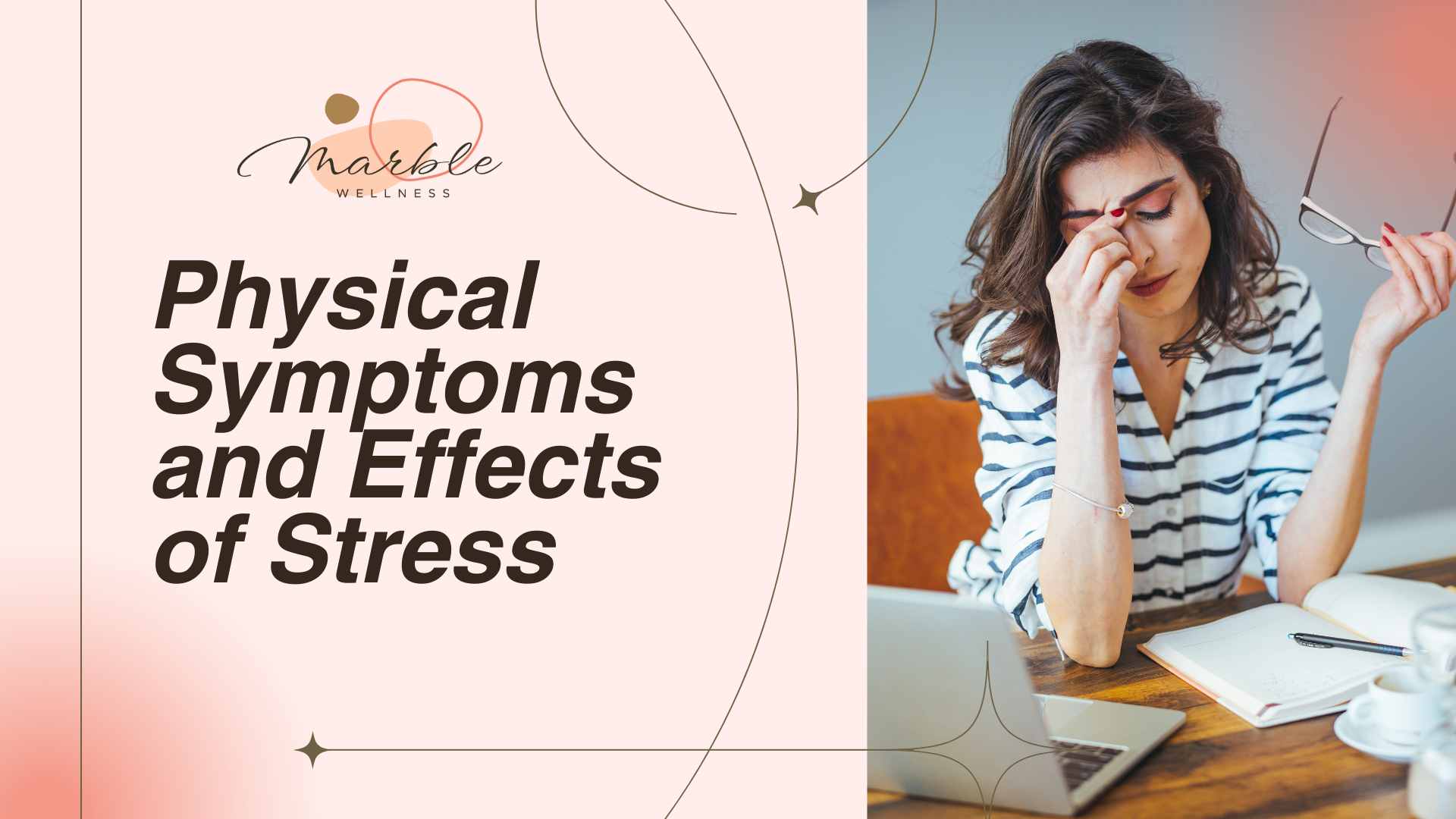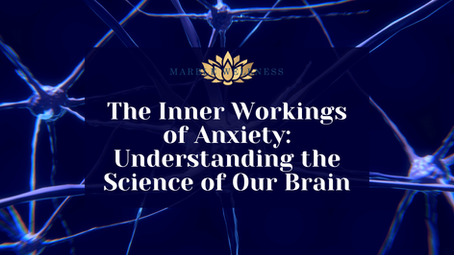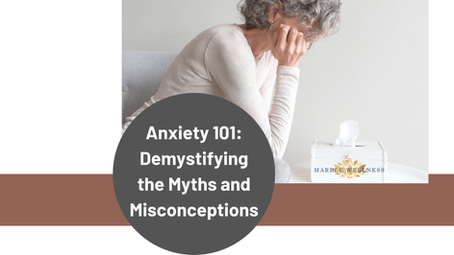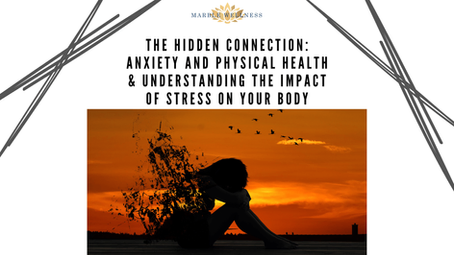When we think of anxiety, we often picture racing thoughts, worry, and an overwhelming sense of dread. But what about anxiety that shows up only in your body? Many people experience physical symptoms of anxiety… without even realizing it’s anxiety. They attribute it to other causes, feeling confused and sometimes frightened by what their body is telling them.
So today, we want to focus on the physical manifestations of anxiety—those symptoms that might leave you dizzy, nauseous, or struggling to catch your breath.
How Anxiety Might Be Affecting Your Body—Without You Knowing It
Physical symptoms of anxiety often surprise people. Here are just a few examples:
- Dizziness or lightheadedness: For some, anxiety brings on dizzy spells that can make the room spin or even cause nausea and vomiting.
- Heart palpitations: Racing heart, skipped beats, or the sensation that your chest is pounding.
- Digestive issues: Nausea, bloating, or sudden digestive discomfort can stem from anxiety. (Think: frequent trips to the bathroom.)
- Sleep disturbances: Trouble falling asleep, waking up frequently, or feeling restless throughout the night.
- Muscle tension and aches: Anxiety can cause muscles to tighten, leaving you sore, fatigued, or achy.
- Shortness of breath or a “lump” in the throat: These sensations can feel scary and mimic serious medical issues.
When these symptoms pop up, it’s normal to wonder what’s going wrong. People often find themselves asking:
- “Is it something I ate?”
- “Could it be too much caffeine or alcohol?”
- “Is this a heart problem?”
- “Do I have a thyroid issue?”
- “Am I just too stressed?”
When the Doctor Finds Nothing “Wrong”
If any of these symptoms sound familiar, you’re not alone. Many people experience the physical effects of anxiety and stress and head straight to their primary care doctor or the nearest urgent care.
They undergo bloodwork, heart monitoring, thyroid tests, and more—only to be told that everything looks “normal.” This can be both a relief and incredibly frustrating. After all, if it’s not a heart problem or a thyroid imbalance, what is it?
Anxiety: The Hidden Culprit
More often than you might think, the answer lies in anxiety. While it’s easy to associate anxiety with emotional symptoms, the physiological response is just as real and just as valid. When your body perceives stress or anxiety, your nervous system goes into overdrive. This can activate your fight-or-flight response, releasing stress hormones like cortisol and adrenaline. Your heart rate increases, blood flow shifts, and your muscles tense—all in preparation for a threat that often isn’t there. Over time, this state of hyperarousal can lead to chronic physical symptoms.
Why Therapy Matters for Physical Symptoms of Anxiety
Many people try to manage anxiety-related symptoms on their own, or they rely solely on medication. While medication can certainly help alleviate some symptoms, it often doesn’t get to the root cause of your anxiety. Therapy, especially a holistic approach to anxiety, is key to understanding what triggers your anxiety and learning to calm both mind and body in sustainable ways.
Working with stress & anxiety therapists who understand the connection between your body and emotions allows for deeper healing. Therapy can teach you how to recognize physical triggers, shift patterns of thinking, and adopt stress management techniques that work for you. Holistic stress management often involves mindfulness, lifestyle changes, and exploring deeper emotional roots of anxiety—helping you develop long-lasting tools.
Myths About Anxiety and Stress
Myth #1: Anxiety is “all in your head.”
Contrary to this common misconception, anxiety isn’t just about what goes on in your mind—it can have a significant physical impact, too. Many clients have shared experiences like frequent dizziness, nausea, or even vomiting. When no medical cause is found, it can feel confusing or even dismissive. But these are real symptoms of anxiety, not something imagined. Your body’s response to stress and anxiety can cause real physiological changes.
Myth #2: If there’s no medical explanation, it must not be real.
For many individuals, anxiety symptoms such as dizziness or racing heartbeats lead to extensive medical testing, with no clear answers. This can be deeply frustrating. However, it doesn’t mean the symptoms aren’t real or valid—it often indicates that anxiety could be the root cause. Our practice works closely with clients to understand the interplay between mind and body, ensuring that we don’t overlook your very real experiences.
Myth #3: Anxiety can be controlled by sheer willpower.
While mental fortitude and perseverance are admirable, anxiety doesn’t typically resolve itself through force of will alone. Taking a compassionate, structured approach is essential, including holistic stress management techniques, a supportive environment, and therapy practices tailored to you.
Understanding Holistic Therapy for Anxiety
What is a Holistic Approach to Anxiety?
At Marble Wellness, we embrace holistic therapy because it treats the whole person—mind, body, and spirit—rather than focusing solely on symptoms. Anxiety often manifests in a wide range of physical and emotional experiences, so it’s important to address both aspects together. Holistic therapy might include cognitive behavioral therapy (CBT), mindfulness practices, meditation, movement-based approaches, and more.
Benefits of Holistic Stress Management Techniques
Managing anxiety holistically can include mindfulness practices, such as guided breathing exercises and yoga, to bring a sense of calm and balance. Techniques like these can help regulate stress responses, reduce physical symptoms, and promote a stronger connection between mind and body.
Creative Solutions to Anxiety Therapy and Stress Management
One of our favorite ways to approach anxiety? Our unique Park Therapy, also known as walk-and-talk therapy. Imagine taking therapy sessions outdoors, surrounded by the calming effect of nature. Movement, fresh air, and a gentle walk alongside a compassionate therapist can reduce stress, lower cortisol levels, and bring fresh perspectives to your concerns. Walk-and-talk therapy allows clients to feel grounded, energized, and at ease while tackling life’s challenges.
Whether you’re experiencing dizziness, heart palpitations, or unexplained physical symptoms, holistic therapy can help you understand what’s going on and develop effective coping strategies.
Real Stories, Real Symptoms — How Therapy Can Help
Consider this: one of our clients struggled with frequent dizziness that left them feeling off-balance and scared. After exhausting medical options, they came to us, uncertain if anxiety could be the cause. Through holistic stress management techniques, mindfulness work, and regular walk-and-talk sessions in a nearby park, they began to feel a tangible shift in their symptoms. By addressing both the mental and physical aspects of anxiety, we were able to uncover the triggers and develop effective coping strategies.
Whether it’s episodes of heart palpitations or a vague sense of unease, holistic therapy can provide relief.
Seeking Support for Physical Symptoms of Anxiety in St. Louis, MO and Beyond
You don’t have to navigate the confusing world of anxiety alone. If you’ve experienced physical symptoms that leave you feeling overwhelmed or concerned, consider reaching out to our team of stress & anxiety therapists at Marble Wellness. We’re here to support you with holistic therapy for anxiety, helping you create a calm space within yourself and your daily life.
Ready to feel relief? Contact us today to learn how holistic approaches, including walk-and-talk therapy, can help you move beyond anxiety and reclaim balance and peace.
Contact Us!
Learn About Our Group Offerings

Additional Counseling Services at Marble Wellness in St. Louis, MO
Our counseling services are designed to help set you on a path of living a more fulfilled, calm, and happy life. Our incredible team of STL based therapists has a variety of training backgrounds and areas of expertise. We specialize in anxiety, depression, grief, chronic illness, therapy for men, couples, and maternal overwhelm. Our practice also helps new moms with various postpartum concerns, moms in the thick of parenting, and moms with teens. We can also chat from wherever you are in the state with online therapy in Missouri. No matter where you are in your mental health journey, we would love to support you.



